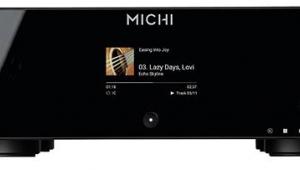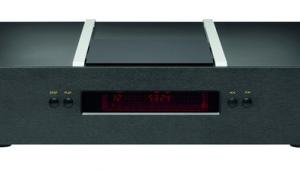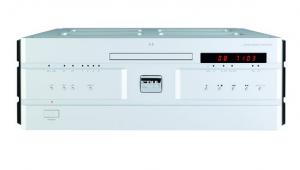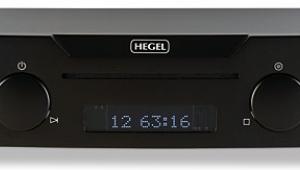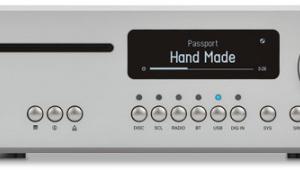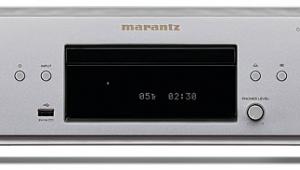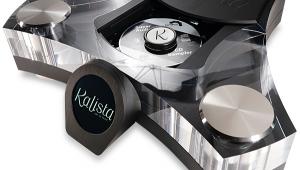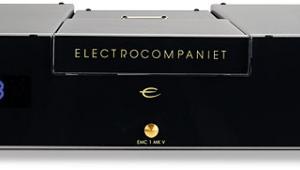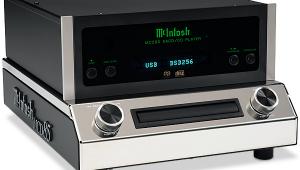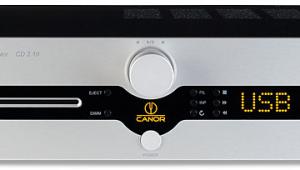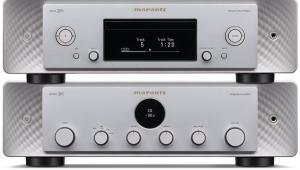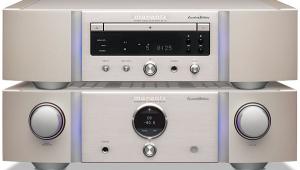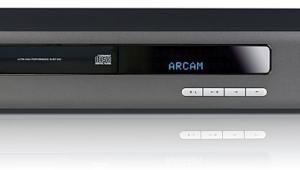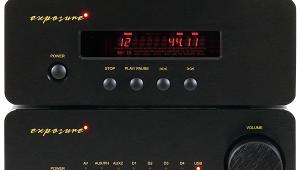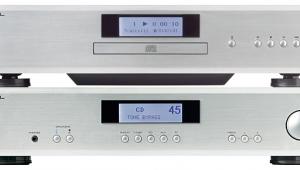Metronome T3a Signature (£8800)
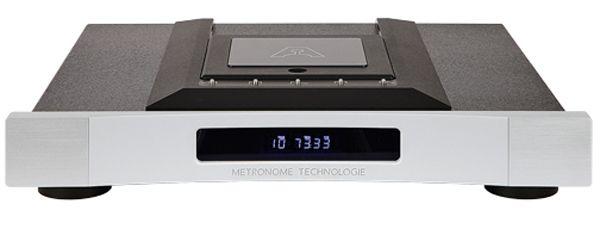
It’s a manual top-loader with an integrated power supply, housed in a sturdy chassis with a thick fascia of brushed aluminium available in silver or black. The unit sits on three substantial feet with circular recesses, into which inverted Delrin cones magnetically locate for maximum isolation from any external vibration.
Sliding back the top plate cover of the T3A to load a CD reveals its transport mechanism, a Philips CDM12 Pro 2 v6.8. CDs are secured in place by a magnetic clamping puck also in Delrin. Metronome modifies the mechanism with a stainless steel shaft, designed to afford improved disc stability and minimise jitter, while also providing a continuous ground-link from the disc’s surface to electrical earth. It says this can eliminate parasitic electrostatic fields generated by the spinning discs.
The T3A has an elaborate power supply employing three toroidal transformers and independent regulation lines for each critical part of the transport – laser pick-up, servo, and control functions – which Metronome says ensures ‘a dynamic, analogue-like sound’.
There are three digital outputs at the rear to feed to your DAC of choice: S/PDIF (gold-plated RCA), AES/EBU (XLR) and – soon to be replaced by Toslink – ST optical.
Peeling back layers
We used the T3A in combination with our resident T+A DAC 8 [HFN Oct ’12], trying both AES/EBU and
S/PDIF interfaces. We perceived subtle differences between these two connections, no doubt attributable to cable choice. Using a 110ohm Nordost Tyr XLR interconnect the sound appeared ‘fast’ and light in balance; with a 75ohm Atlas Mavros RCA cable the sound was subjectively warmer, and more full-bodied.
The 1985 album Three-Way Mirror [Reference Recordings] by Brazilian percussionist Airto Moreira and his wife Flora Purim performing with American saxophonist and flautist Joe Farrell is a vivid and dynamic recording containing layer upon layer of fine detail. The soundstage here was wide and immensely deep, the tonal individuality of the instruments within it seeming to be carefully preserved even as the recorded levels maxed out during the more boisterous passages.
This is where many digital source components can fall down, individual sound elements melding into a ‘mash’ at high levels, and appearing as if the spaces in the frequency spectrum had been filled with intermodulation products. With the T3A/T+A DAC 8 instruments appeared clearly separated and the sound was indeed relaxed and easy to decipher. Subjectively, the music appeared to develop almost languidly, enhancing nuance and detail yet never appearing over-etched or clinical.
Drummer Bill Bruford’s prog jazz/rock/fusion album One Of A Kind [EG Records] is a densely packed production typically sounding thick and hard to decipher. Yet it presented a fine example of the Metronome’s ability to peel back layers, stripping apart the virtuoso musicians’ breathtaking performances. Clarity and focus were nothing short of stunning.
The depth, control, pitch definition and detail delivered by the Metronome exceeded all expectations from this pretty average recording. Rather than serving up merely a blur of low-frequency information, this CD front-end snapped tight the lower registers with an astonishing clarity.
Verdict
The T3A Signature can be highly recommended. While it might not have the visual ‘wow’ factor of Metronome’s cost-no-object audio sculptures this more conventional-looking transport is exceptionally well made and will deliver fabulous sound quality.
Originally published in the 2013 Yearbook

